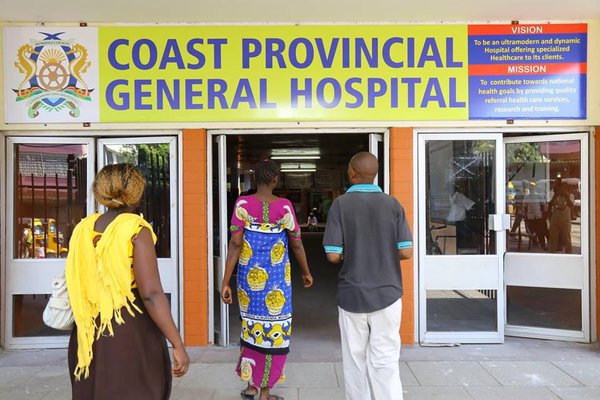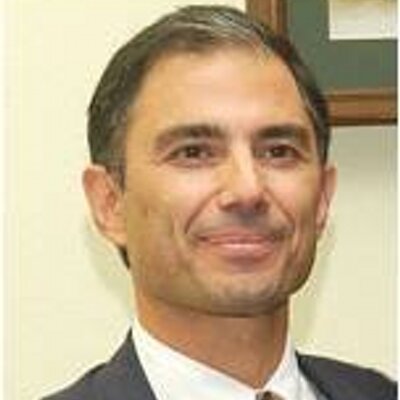Forced anti-gay anal tests face legal challenge in Kenya
Colin Stewart is a 45-year journalism veteran living in Southern…
Human Rights Watch issued this press release today:
Kenya: Court to Hear Forced Anal Testing Case
Invalidated Homosexuality “Test” Violates International Law
(Nairobi, May 3, 2016) – A Kenyan court will hear a constitutional petition challenging the use of forced anal examinations of men accused of homosexuality on May 4, 2016, Human Rights Watch said today. Under international law, forced anal examinations are a form of cruel, inhuman, and degrading treatment that may amount to torture.

In the case before the Mombasa high court, the two petitioners, both male adults identified in the petition only as C.O.I. and G.M.N., state that doctors at Mombasa’s Coast General Provincial Hospital (also known as Madaraka Hospital), in collaboration with law enforcement officials, violated their rights by subjecting them to forced anal examinations, HIV tests, and other blood tests in February 2015, while they were in police custody on charges related to alleged homosexual conduct. Anal examinations are a discredited, 19th century method used by law enforcement officials to attempt to “prove” homosexuality in several countries around the world, Human Rights Watch said.
“Anal examinations prove nothing, and they accomplish nothing, other than humiliating and demeaning people who are considered moral ‘outcasts,’” said Neela Ghoshal, senior researcher on lesbian, gay, bisexual, and transgender (LGBT) rights at Human Rights Watch. “It’s frankly shocking to see such archaic methods used in Kenya in the 21st century.”
Human Rights Watch has documented the use of forced anal examinations in eight countries since 2010: Cameroon, Egypt, Kenya, Lebanon, Tunisia, Turkmenistan, Uganda, and Zambia. These examinations usually involve doctors or other medical personnel inserting their fingers, and sometimes other objects, into the anus of the accused. In other cases, men are ordered to strip naked and bend over or lie down with their feet in stirrups while doctors “visually” examine their anal regions. Law enforcement officials and some medical personnel claim that by forcibly penetrating or otherwise examining the anuses of men accused of homosexuality, they can determine the tone of the anal sphincter or the shape of the anus and draw conclusions as to whether these men have engaged in homosexual conduct.
The United Nations special rapporteur on torture and cruel, inhuman or degrading treatment stated in a January report: “In States where homosexuality is criminalized, men suspected of same-sex conduct are subject to non-consensual anal examinations intended to obtain physical evidence of homosexuality, a practice that is medically worthless and amounts to torture or ill-treatment.”
Forced anal exams violate the Convention against Torture, the International Covenant on Civil and Political Rights, and the African Convention on Human and Peoples’ Rights – all treaties that Kenya has ratified, Human Rights Watch said. Under international law and Kenya’s Sexual Offenses Act, if the exams involve any form of unwanted penetration, they constitute sexual assault and possibly rape.
Human Rights Watch has interviewed forensic medicine specialists around the world who have confirmed that anal examinations are medically worthless. According to one doctor in Uganda who has conducted dozens of anal examinations: “If it is a case involving consenting adults, you can’t tell much from examining them. … The police bring them for exams because the neighbors are complaining that someone is homosexual, and the police become suspicious. They ask me to fill in the form, but it doesn’t serve much purpose.”

The Independent Forensic Experts Group (IFEG) condemned anal examinations in a recent statement. “Anal examinations to ‘detect homosexuality have no scientific value, are unethical, and constitute cruel, inhuman and degrading treatment and possibly torture,” said Dr. Vincent Iacopino, medical director at Physicians for Human Rights and member of IFEG. “Sexual identity and orientation is not a disease or a crime and health professionals have no business diagnosing it or aiding State officials in policing and punishing people on the basis of their sexuality.”
In Lebanon, the Lebanese Order of Physicians issued a circular in 2012 prohibiting medical personnel from conducting anal examinations, which they described as a clear violation of medical ethics. The justice minister followed suit, calling on prosecutors to stop ordering anal exams on men accused of homosexuality. Although Human Rights Watch research has found that forced anal exams do occasionally still occur in Lebanon, the ban appears to have significantly diminished their frequency.
“Governments in Kenya and around the world should take immediate steps to ban forced anal exams,” Ghoshal said. “The men in the Mombasa case, and dozens of others around the world, should never have had to undergo such a humiliating and demeaning procedure, and governments should prevent this from happening to others in the future.”
More Human Rights Watch reporting on forced anal examinations:
- Egypt: https://www.hrw.org/report/2004/02/29/time-torture/assault-justice-egypts-crackdown-homosexual-conduct
- Lebanon: https://www.hrw.org/news/2012/08/10/lebanon-stop-tests-shame
- Cameroon: https://www.hrw.org/report/2013/03/21/guilty-association/human-rights-violations-enforcement-cameroons-anti
- Kenya: https://www.hrw.org/report/2015/09/28/issue-violence/attacks-lgbt-people-kenyas-coast
- Tunisia: https://www.hrw.org/news/2016/04/04/submission-united-nations-committee-against-torture-tunisia
Related articles in this blog:
- Tunisia: Protests against anal exam, sodomy sentence (September 2015)
- Anti-gay Ugandan tactic: Abusive, worthless anal exam (May 2014)
- Outcry against anal exams by police in Lebanon (August 2012)




Challenging Jamaica’s bedrock of sexual ignorance